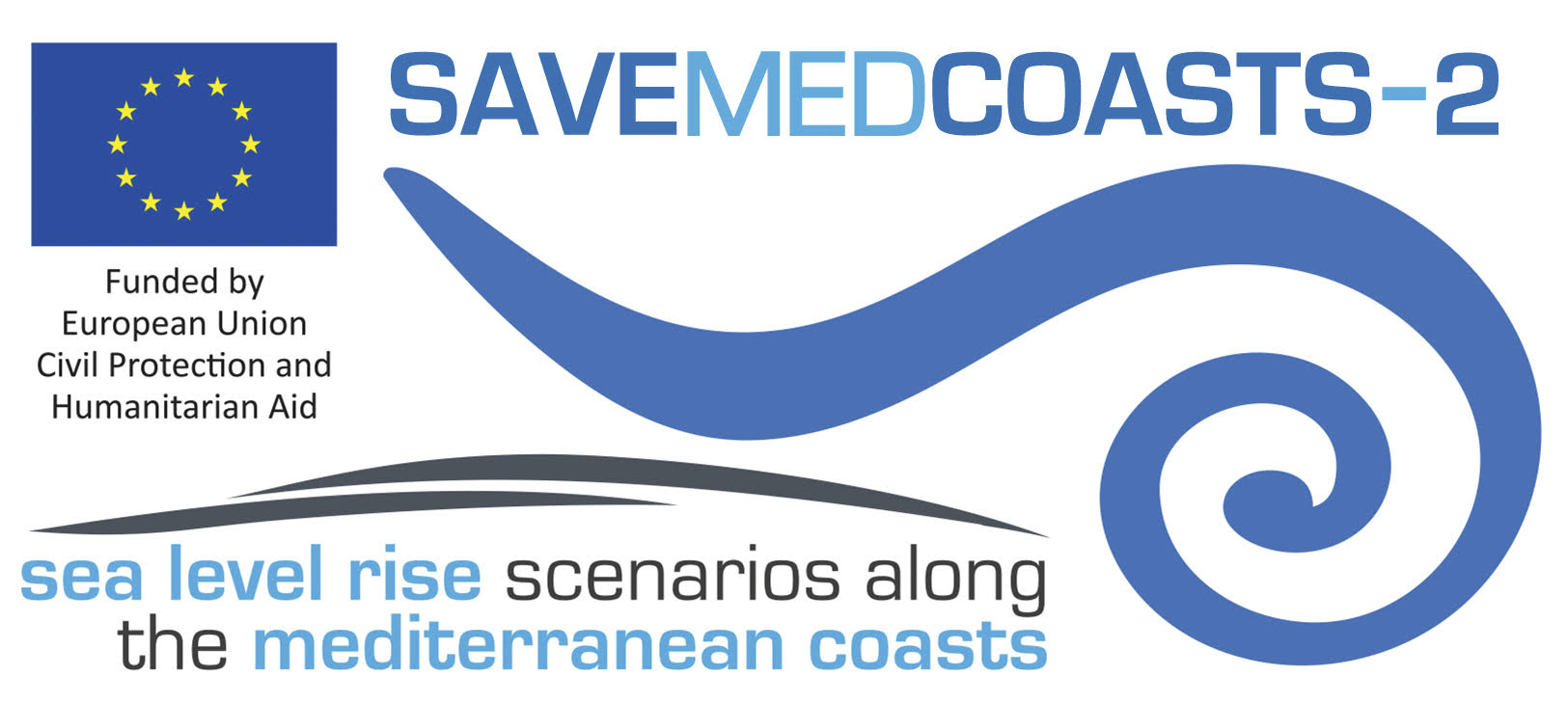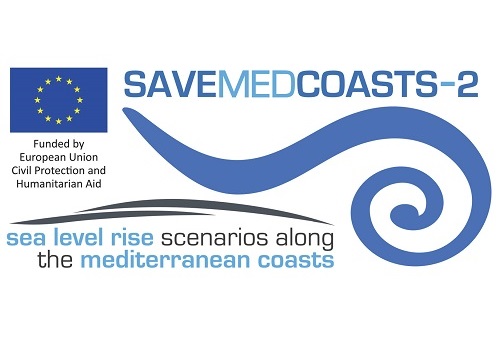L’INGV al Forum di Bruxelles sulla mitigazione dei rischi naturali con il progetto SAVEMEDCOASTS-2, volto ad aumentare la consapevolezza di cittadini e decisori politici sui pericoli di innalzamento del livello del mare dovuto ai cambiamenti climatici
Il progetto (Sea level rise scenarios along the Mediterranean coasts), coordinato dall’Istituto Nazionale di Geofisica e Vulcanologia (INGV) e finanziato dalla Direzione Generale per la protezione civile e le operazioni di aiuto umanitario europee (DG-ECHO), è presente al che si sta svolgendo in queste ore presso il Centro Congressi SQUARE di Bruxelles (BE).
Tra i temi centrali del Forum, evento di incontro internazionale tra professionisti e decisori politici nell’ambito della protezione civile europea, la possibilità che nel prossimo futuro si verifichino eventi meteorologici estremi e la necessità di adattarsi ai nuovi potenziali rischi naturali.
Tematiche, queste, di cui SAVEMEDCOASTS-2, nato nel 2019 come seconda fase del progetto SAVEMEDCOASTS, si è occupato ampiamente in questi anni offrendo una panoramica dei rischi connessi all’aumento del livello del mare indotto dai cambiamenti climatici e dalla subsidenza costiera nel Mediterraneo e fornendo proiezioni e scenari di aumento del livello marino fino al 2100.
“Con SAVEMEDCOASTS-2 abbiamo concentrato gli sforzi sullo studio di alcuni dei principali delta fluviali e zone lagunari del Mediterraneo, dove la subsidenza naturale e antropica accelera gli effetti dell’ingressione marina, con conseguenti maggiori rischi di sommersione di tratti costieri ad alto valore naturale ed economico ed effetti a cascata sulle attività umane”, spiega Marco Anzidei, ricercatore dell’INGV e coordinatore del progetto.
“Il nostro obiettivo è stato quello di aumentare la consapevolezza delle comunità costiere maggiormente esposte ai rischi di inondazione, i cui effetti attesi sono stati illustrati con delle mappe ad alta risoluzione che presenteremo anche qui a Bruxelles. Si tratta di strumenti importanti per i decisori politici, che possono così avere un supporto scientifico nella gestione consapevole delle coste”, conclude Anzidei.
Scarica qui la brochure del progetto SAVEMEDCOASTS-2
---
CLIMATE CHANGE | The INGV SAVEMEDCOASTS-2 project at the European Civil Protection Forum
INGV at the Brussels Forum on the mitigation of natural risks with the SAVEMEDCOASTS-2 project, aimed at increasing the awareness of citizens and policy makers on the dangers of rising sea levels due to climate change
The (Sea level rise scenarios along the Mediterranean coasts) project, coordinated by the National Institute of Geophysics and Volcanology (INGV) and funded by the Directorate General for Civil Protection and European Humanitarian Aid Operations (DG-ECHO), is present at the which is taking place in these hours at the SQUARE Congress Center in Brussels (BE).
Among the central themes of the Forum, an international meeting event between professionals and policy makers in the field of European civil protection, the possibility that extreme weather events will occur in the near future and the need to adapt to new potential natural hazards.
These are themes that SAVEMEDCOASTS-2, born in 2019 as the second phase of the SAVEMEDCOASTS project, has dealt extensively in recent years, offering an overview of the risks associated with the rise in sea level induced by climate change and coastal subsidence in the Mediterranean and providing projections and scenarios of sea level rise up to 2100.
“With SAVEMEDCOASTS-2 we have concentrated our efforts on the study of some of the main river deltas and lagoon areas of the Mediterranean, where natural and anthropogenic subsidence accelerates the effects of marine ingress, with consequent greater risks of submersion of coastal stretches of high natural and economic value and cascading effects on human activities”, explains Marco Anzidei, researcher at INGV and coordinator of the project.
“Our goal was to raise awareness of coastal communities most exposed to flood risks, the expected effects of which have been illustrated with high-resolution maps that we will also present here in Brussels. These are important tools for policy makers, who can thus have scientific support in the conscious management of the coasts”, concludes Anzidei.
Download here the brochure of SAVEMEDCOASTS-2
Il progetto (Sea level rise scenarios along the Mediterranean coasts), coordinato dall’Istituto Nazionale di Geofisica e Vulcanologia (INGV) e finanziato dalla Direzione Generale per la protezione civile e le operazioni di aiuto umanitario europee (DG-ECHO), è presente al che si sta svolgendo in queste ore presso il Centro Congressi SQUARE di Bruxelles (BE).
Tra i temi centrali del Forum, evento di incontro internazionale tra professionisti e decisori politici nell’ambito della protezione civile europea, la possibilità che nel prossimo futuro si verifichino eventi meteorologici estremi e la necessità di adattarsi ai nuovi potenziali rischi naturali.
Tematiche, queste, di cui SAVEMEDCOASTS-2, nato nel 2019 come seconda fase del progetto SAVEMEDCOASTS, si è occupato ampiamente in questi anni offrendo una panoramica dei rischi connessi all’aumento del livello del mare indotto dai cambiamenti climatici e dalla subsidenza costiera nel Mediterraneo e fornendo proiezioni e scenari di aumento del livello marino fino al 2100.
“Con SAVEMEDCOASTS-2 abbiamo concentrato gli sforzi sullo studio di alcuni dei principali delta fluviali e zone lagunari del Mediterraneo, dove la subsidenza naturale e antropica accelera gli effetti dell’ingressione marina, con conseguenti maggiori rischi di sommersione di tratti costieri ad alto valore naturale ed economico ed effetti a cascata sulle attività umane”, spiega Marco Anzidei, ricercatore dell’INGV e coordinatore del progetto.
“Il nostro obiettivo è stato quello di aumentare la consapevolezza delle comunità costiere maggiormente esposte ai rischi di inondazione, i cui effetti attesi sono stati illustrati con delle mappe ad alta risoluzione che presenteremo anche qui a Bruxelles. Si tratta di strumenti importanti per i decisori politici, che possono così avere un supporto scientifico nella gestione consapevole delle coste”, conclude Anzidei.
Scarica qui la brochure del progetto SAVEMEDCOASTS-2
---
CLIMATE CHANGE | The INGV SAVEMEDCOASTS-2 project at the European Civil Protection Forum
INGV at the Brussels Forum on the mitigation of natural risks with the SAVEMEDCOASTS-2 project, aimed at increasing the awareness of citizens and policy makers on the dangers of rising sea levels due to climate change
The (Sea level rise scenarios along the Mediterranean coasts) project, coordinated by the National Institute of Geophysics and Volcanology (INGV) and funded by the Directorate General for Civil Protection and European Humanitarian Aid Operations (DG-ECHO), is present at the which is taking place in these hours at the SQUARE Congress Center in Brussels (BE).
Among the central themes of the Forum, an international meeting event between professionals and policy makers in the field of European civil protection, the possibility that extreme weather events will occur in the near future and the need to adapt to new potential natural hazards.
These are themes that SAVEMEDCOASTS-2, born in 2019 as the second phase of the SAVEMEDCOASTS project, has dealt extensively in recent years, offering an overview of the risks associated with the rise in sea level induced by climate change and coastal subsidence in the Mediterranean and providing projections and scenarios of sea level rise up to 2100.
“With SAVEMEDCOASTS-2 we have concentrated our efforts on the study of some of the main river deltas and lagoon areas of the Mediterranean, where natural and anthropogenic subsidence accelerates the effects of marine ingress, with consequent greater risks of submersion of coastal stretches of high natural and economic value and cascading effects on human activities”, explains Marco Anzidei, researcher at INGV and coordinator of the project.
“Our goal was to raise awareness of coastal communities most exposed to flood risks, the expected effects of which have been illustrated with high-resolution maps that we will also present here in Brussels. These are important tools for policy makers, who can thus have scientific support in the conscious management of the coasts”, concludes Anzidei.
Download here the brochure of SAVEMEDCOASTS-2






